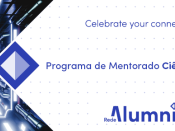Por Leon Ingelse (LASIGE/DI-FCUL).
There is a growing interest in monitoring gait patterns in people with neurological conditions. The democratization of wearable inertial sensors has enabled the study of gait in free living environments. One pivotal aspect to gait assessment in uncontrolled environments is to accurately recognize gait instances. Previous work has focused on wavelet transform methods or general machine learning models to detect gait; the former assumes a comparable gait pattern between people and the latter assumes training datasets that represent the diverse population. In this paper, we argue that these approaches are unsuitable for people with severe motor impairments and their distinct gait patterns, and make the case for a lightweight personalized alternative. We propose an approach that builds on top of a general model, fine-tuning it with personalized data. A comparative proof-of-concept evaluation with general machine learning (NN and CNN) approaches and personalized counterparts, showed that the latter improved overall accuracy in 3.5 % for the NN; and 5.3 % for the CNN. More importantly, participants that were ill-represented by the general model (the most extreme cases) had the recognition of gait instances improved by up to 16.9 % for NN and 20.5 % for CNN, with the personalized approaches. It is common to say that people with neurological conditions, like Parkinson's disease, present very individual motor patterns, and that in a sense they are all outliers; we expect that our results motivate researchers to explore alternative approaches that value personalization rather than harvesting datasets that are (maybe) able to represent these differences.
Bio: Leon Ingelse is writing his thesis with Alcides Fonseca on Automated Feature Engineering using Genetic Programming. He was born in Amsterdam, the Netherlands, where he also did a Bachelor in Mathematics at the University of Amsterdam. Last year he started the master of Data Science at the Faculty of Science of the University of Lisbon and collaborated with Tiago Guerreiro and Diogo Branco on the personalization of gait recognition for people with neurological conditions.
Transmissão via Zoom.






















